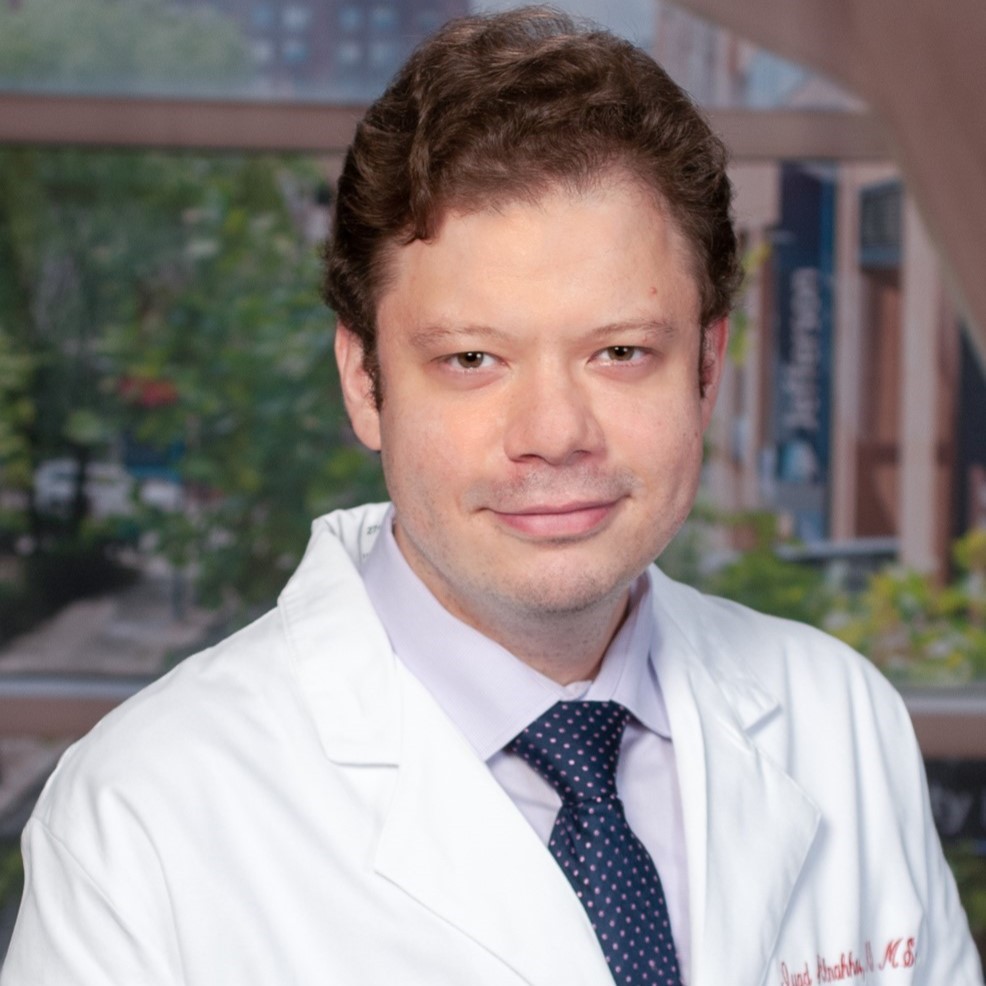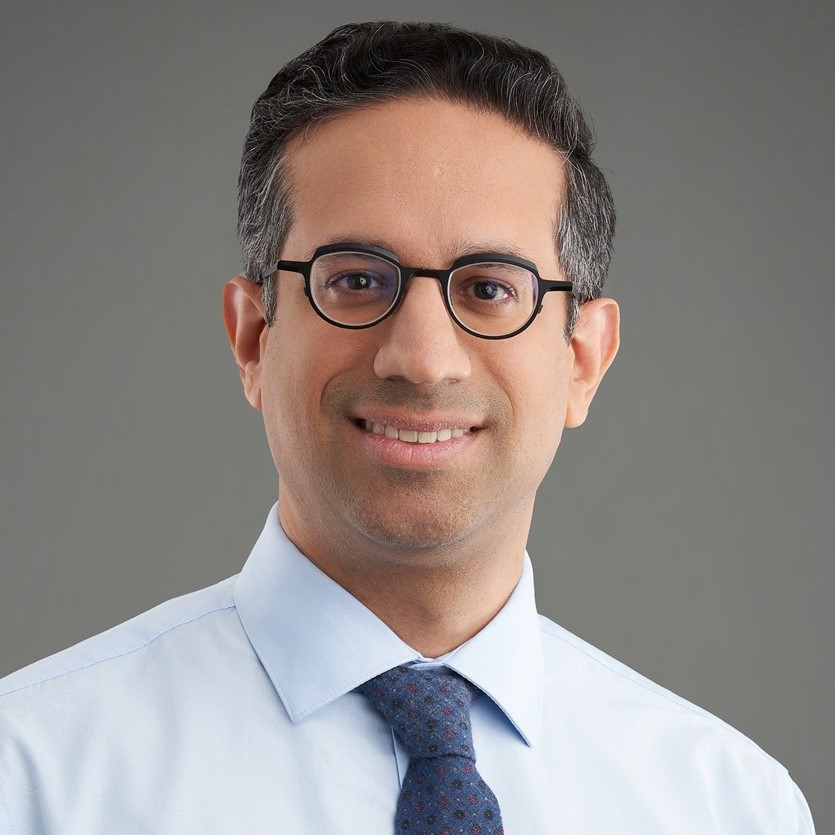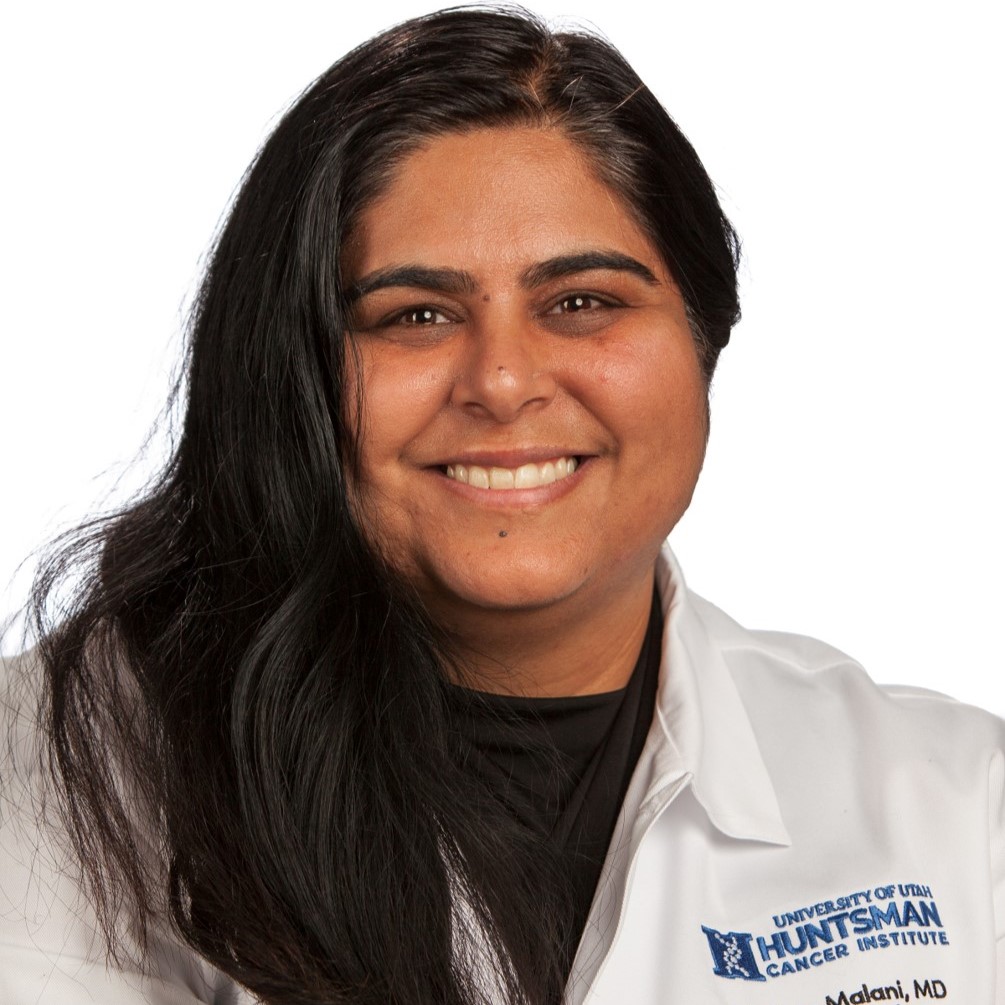Meet our Podcast Hosts!
Neuro-Oncology: The Podcast keeps you up to date on the latest advances from the field of neuro-oncology as we present conversations with the authors of selected papers from
Neuro-Oncology and its sister journals,
Neuro-Oncology Practice and
Neuro-Oncology Advances.
Neuro-Oncology: The Podcast is available on Apple Podcasts, Google Podcasts, Spotify and other major platforms.
Interested in becoming a podcast host? Please email Gabrielle Griffin
[email protected] in the SNO administrative office for more information.
 Dr. Iyad Alnahhas
Dr. Iyad Alnahhas is the producer and co-host of Neuro-Oncology: The Podcast. Iyad received his medical degree at Damascus University, Syria, followed by a master’s in clinical research at Mount Sinai School of Medicine. He then completed his neurology residency at Virginia Commonwealth University and neuro-oncology fellowship at the Ohio State University. He’s an Assistant Professor of Neurology at Thomas Jefferson University. Iyad’s research is focused on glioma genomics and bioinformatics. His other passions include coding, podcasting, biking and theater.
 Dr. Ankush Bhatia
Dr. Ankush Bhatia is a neuro-oncologist at the University of Wisconsin-Madison School of Medicine. He helps lead the brain tumor program at the Carbone Cancer Center. Ankush earned his undergraduate degree in molecular biophysics and biochemistry at the Illinois Institute of Technology in Chicago, Illinois. He then completed a combined master’s in anatomy and cell biology and doctor of medicine at Rush Medical College at Rush University in Chicago. He remained at Rush University Medical Center to complete his neurology residency and then completed his fellowship in neuro-oncology at Memorial Sloan Kettering Cancer Center (MSKCC) in New York City. Following his fellowship, he served as faculty at MSKCC before settling in Madison, Wisconsin. His clinical research is focused on improving biomarkers of disease progression in neuro-oncological diseases using advanced neuroimaging, patient-centered outcomes, and molecular genetics. He is also studying novel radioligands in the diagnosis and treatment of gliomas.
 Dr. John Fortunato
Dr. John Fortunato is a second-year neuro oncology fellow at Memorial Sloan Kettering Cancer Center. He completed medical school at the Oakland University William Beaumont School of Medicine and neurology residency at the University of Chicago. Before his medical training, he completed a master's degree in bioethics at Case Western Reserve University. His academic interests include clinical ethics in neuro oncology. He will be starting his career as a neuro oncologist at the University of Michigan in the summer of 2024.
 Dr. Maya Graham
Dr. Maya Graham is an Assistant Attending Neurologist on the Brain Tumor Service in the Department of Neurology at Memorial Sloan Kettering Cancer Center (MSKCC). She is a physician scientist building a career in basic/translational research focused on the role of plasticity and chromatin remodeling in malignant glioma initiation, maintenance and treatment resistance. She received her MD and PhD at the Northwestern University Feinberg School of Medicine in her native Chicago, IL, moved to Boston to complete her neurology residency at the Mass General Brigham program, and finally came to MSK for her neuro-oncology fellowship. Outside of the hospital and the lab, she enjoys spending time with her husband and toddler son, drinking craft beer, singing and traveling.

Dr. Jasmin Jo is a neuro-oncologist and the director of the neuro-oncology program at East Carolina University. Dr. Jo finished two neurology residencies at the University of Virginia and at University of the East in the Philippines. She then went on to complete a three-year neuro-oncology fellowship training at the University of Virginia and at the Mass General Brigham program. Her research interests are focused on lower grade glioma and complications of cancer, including venous thromboembolism. She loves being a dog mom to a senior rat terrier and a rescue pup. She and her husband enjoy cycling, boating and hiking with their dogs.
 Dr. Rachna Malani
Dr. Rachna Malani is an Assistant Professor in the Department of Neurosurgery at the University of Utah and an Investigator at the Huntsman Cancer Institute. She is a neuro-oncologist with a subspecialty interest in central nervous system metastasis. Dr. Malani received her medical degree from the University of Sheffield, United Kingdom. She then did her neurology residency at SUNY Downstate in Brooklyn followed by a neuro-oncology fellowship at Memorial Sloan-Kettering Cancer Center (MSKCC) in New York City. Once she completed her fellowship she became an Attending physician in Neuro-Oncology at MSKCC where she practiced for several years before joining the University of Utah/Huntsman Cancer Institute. She enjoys spending her time reading, stand up paddle boarding and podcasting!
 Dr. Evan Noch
Dr. Evan Noch is an Assistant Professor of Neurology and the Director of Physician-Scientist Development in the Department of Neurology at the University of Texas Southwestern Medical Center. Evan earned his MD and PhD degrees from Temple University before completing his residency in Neurology at Weill Cornell Medicine and fellowship in Neuro-oncology at Memorial Sloan Kettering Cancer Center. In the lab, Evan studies glioblastoma metabolism, with a focus on synergistic drug and dietary therapies targeting glucose utilization and redox pathways. His recently published work showed that insulin feedback is a targetable mechanism of resistance to PI3K inhibition in glioblastoma. In separate work, he demonstrated that cysteine induces mitochondrial toxicity in glioma cells and in orthotopic glioblastoma mouse models. Evan serves on the Board of Directors of the American Physician Scientists Association, the leading organization advocating for physician-scientist trainees, and is the co-founder and CEO of Destroke, which is developing mobile platforms for clinical stroke education by patients and their loved ones.